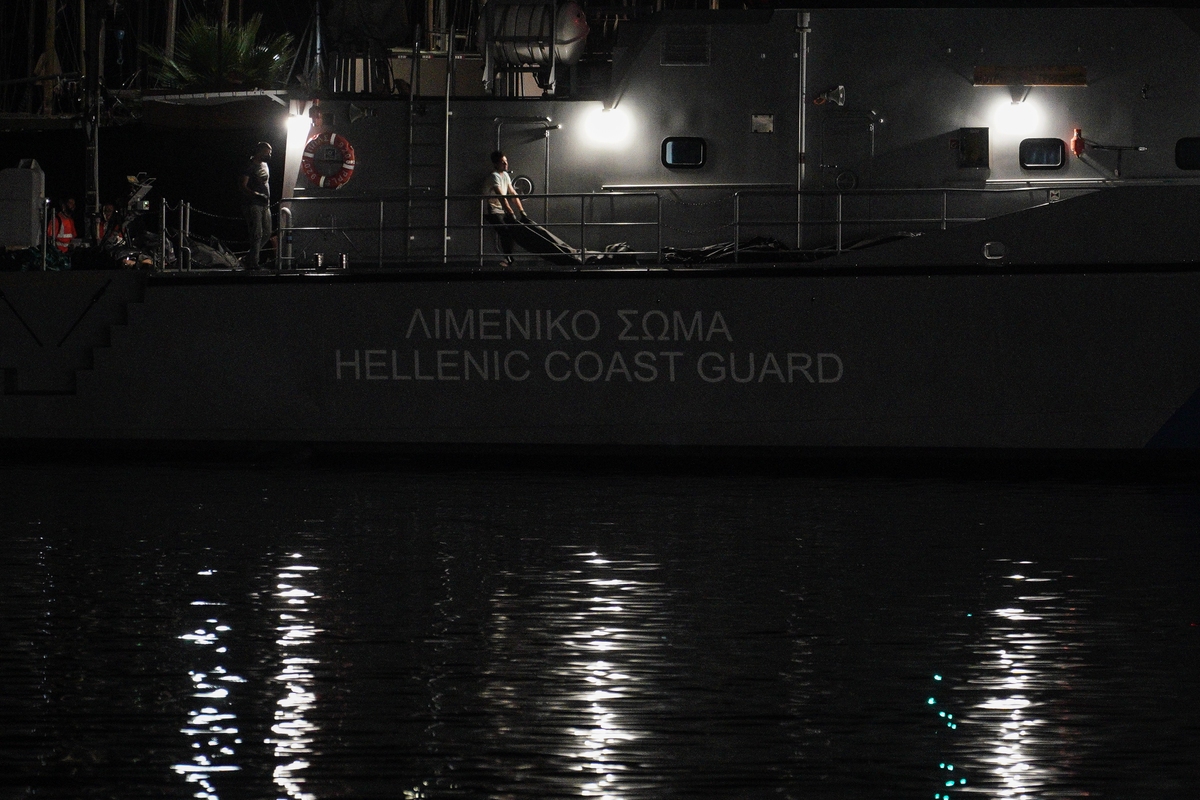Ministry of Maritime Affairs condemns Ombudsman’s Pylos Shipwreck report, shields Coast Guard from blame

Directly targeting the Independent Authority, the Ministry emphasizes that:
“The findings are objectively trying to move the focus from the criminal smuggling networks to the officers of the Greek Coast Guard, who work around the clock to protect the country. However, this effort is marked by a glaring discrepancy between the content and the conclusions: the report holds a multitude of Coast Guard officers responsible for serious criminal offenses—without even naming them in its analysis. Among several versions regarding the actual facts of the case, it consistently favors those claims that question the proper performance of the Coast Guard’s duties, all without any reliable evidence.”
The Greek Ombudsman Report
It is recalled that “the Independent Authority’s report provides clear indications implicating eight (8) high-ranking officers of the Hellenic Coast Guard. They were aware of the dangers threatening the lives, health, and safety of the migrants aboard the Adriana fishing vessel, yet failing to take action to prevent them. They are considered responsible for exposing the migrants to mortal danger, as well as to risks threatening the lives, health, and physical integrity of the passengers, in violation of Article 306 of the Penal Code. “
Regarding the documentation, the Greek Ombudsman noted that “ater gathering around 5,000 pages of evidence—including written responses from relevant services, journalistic investigations, seventeen additional sworn testimonies, an expert report, an opinion requested by the Independent Authority, and the investigative file forwarded by the Kalamata Court of Appeal—and collecting oral and written explanations from ten members of the Hellenic Coast Guard, to whom all these documents were provided, the Greek Ombudsman prepared a 148-page report on the Pylos shipwreck that resulted in the deaths of over 600 people.”
Moreover, as the Greek Ombudsman complains, “crucial evidence has not been provided to the Authority, despite its requests, including the mobile phone data of the Coast Guard captain, held by the Piraeus Admiralty Court, as well as the full communications between the captain and the Coast Guard’s Joint Rescue Coordination Center (EKSED) up to the vessel’s capsizing, regarding which the Coast Guard claimed no digital data had been archived, although regulations require it.”
Ministry’s rebuttal to the Ombudsman’s findings
For its part, the Ministry further contends that “the Greek Ombudsman’s report is ultimately based on unfounded assumptions about the Coast Guard’s handling of the crisis.”
Subsequently, the Ministry of Maritime Affairs and Insular Policy fully defends the Greek Coast Guard’s responsibilities, stating that, in a time when irregular migration is causing global concern, the Government remains unwaveringly committed to a strict yet fair policy of border protection.
“We have absolute trust in the Coast Guard—not only for the effective safeguarding of our national and EU borders but also for the execution of search and rescue operations in a manner that respects and protects the fundamental rights of those in danger.”
In closing, the Ministry of Maritime Affairs and Insular Policy sharply criticized Citizen’s Advocate Andreas Pottaikis, noting that a report—which by law should have been completed within three months—was only finished fifteen months after the investigation began. This delay happened while opposition parties in October 2024 refused to approve a new Citizen’s Advocate—not because they had concerns about the candidate, but because the investigation into the Pyla shipwreck was still ongoing, even though it should have been concluded by October.”
The Ministry points out:
“although the Ombudsman’s term expired on July 25, 2022, he nonetheless initiated an investigation into the case—which took place during a caretaker government in June 2023—on his own initiative in November of the same year.”
______________________________________________
Are you seeking news from Greece presented from a progressive, non-mainstream perspective? Subscribe monthly or annually to support TPP International in delivering independent reporting in English. Don’t let Greek progressive voices fade.
Make sure to reference “TPP International” and your order number as the reason for payment.